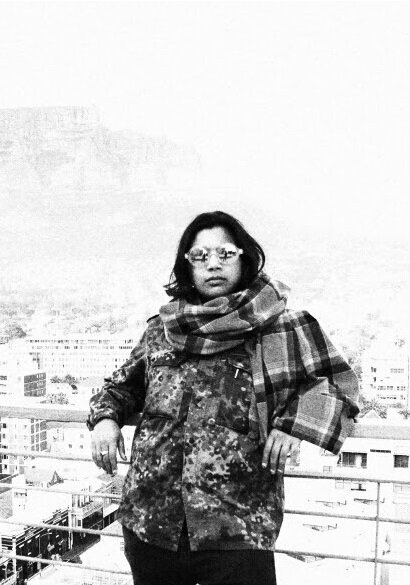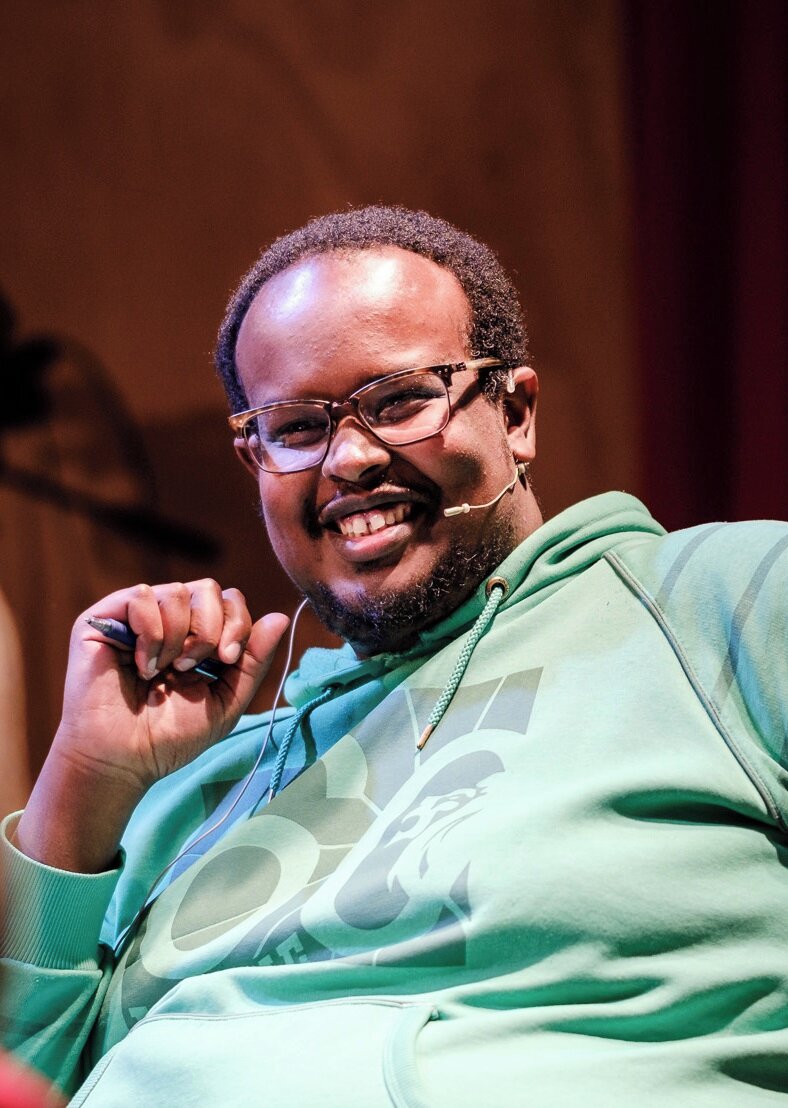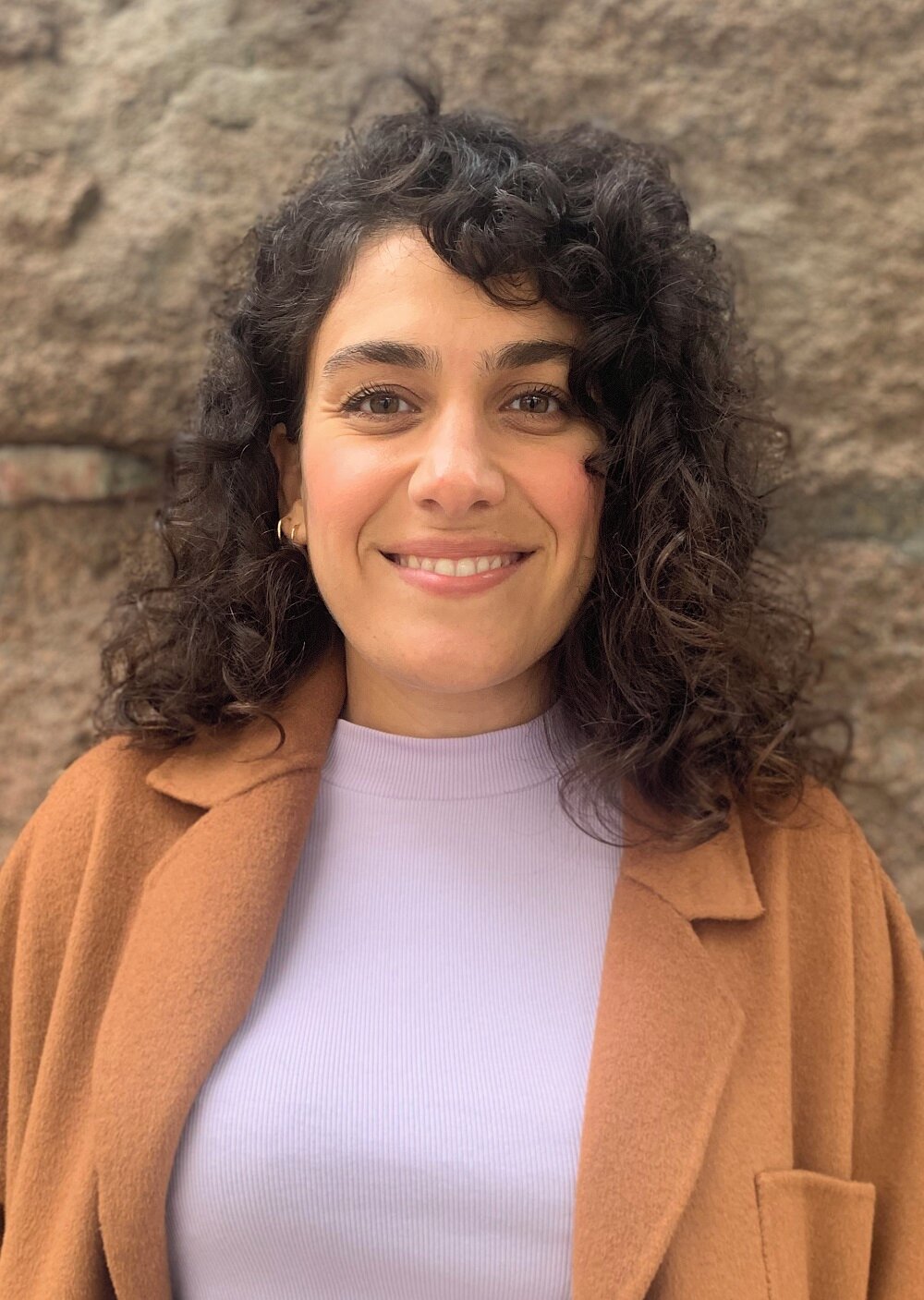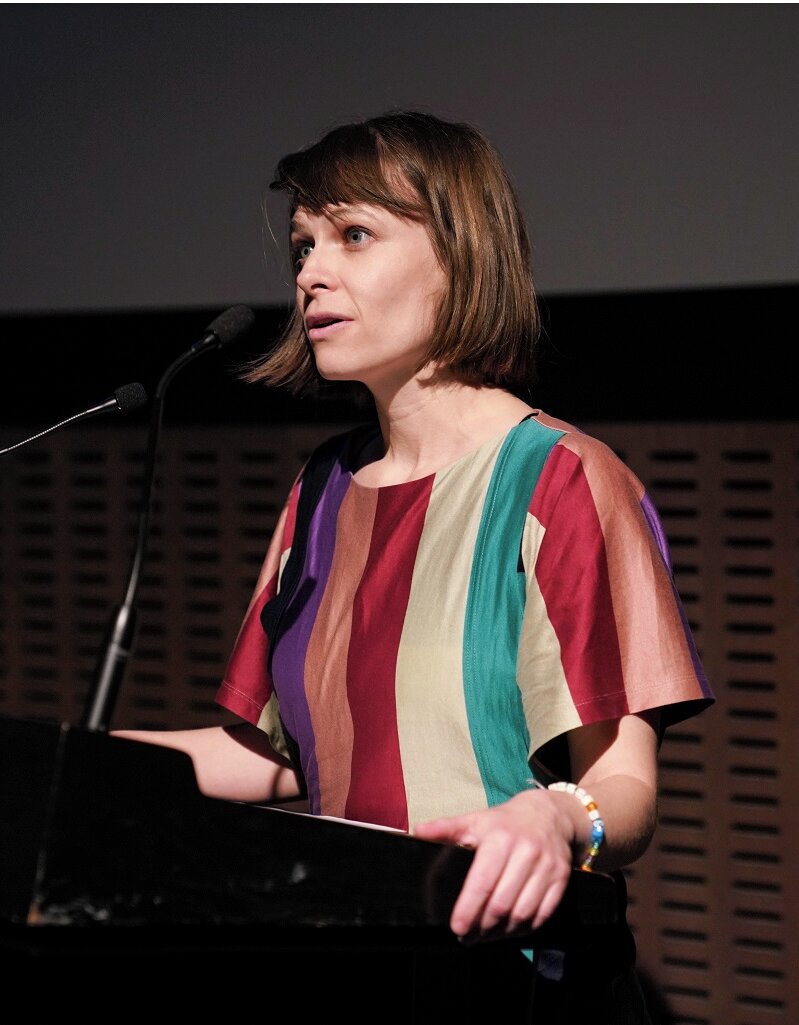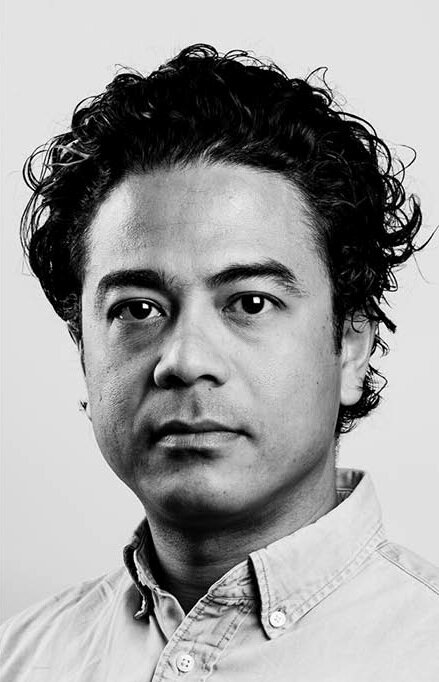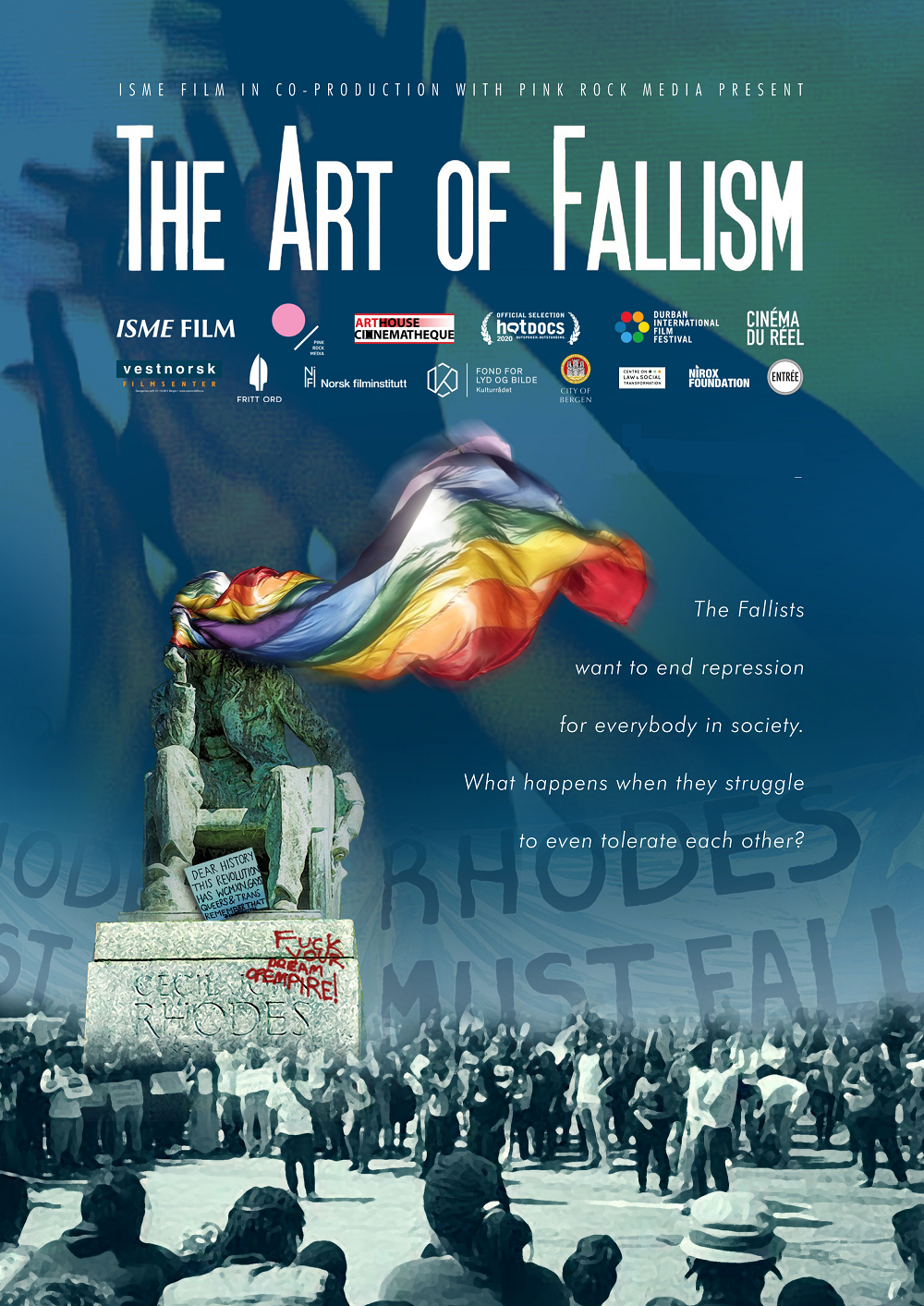The Art of Fallism – decolonisation in a Norwegian context
October 19 2020 17:30–20:00
Vega Scene, Hausmanns gate 28, Oslo
Fritt Ord, Isme Film and Oslo Documentary Cinema invite the public to the Oslo premiere of the documentary film “The Art of Fallism” and to a discussion about decolonisation in a Norwegian context.
Co-producers Ingvild Aagedal Skage and Wisaal Abrahams (on video from South Africa) will be speaking before the film.
Following the film, there will be a panel discussion featuring Mohamed Abdi, teacher, columnist in the newspaper Morgenbladet and social commentator, Melike Leblebicioglu, creator of the series “Norwegian-ish” and a producer at NRK, and Sarah Lookofsky, recently appointed dean of the Oslo National Academy of the Arts at KHiO. The discussion will be moderated by Yohan Shanmugaratnam, author of “We’re still breathing” and foreign correspondent for the newspaper Klassekampen.
The event is open to the public. To register and get a ticket (free of charge), click on this link:
https://checkout.ebillett.no/287/events/13780/purchase?presale_id=!uxs9gviiqg
About the film:
In 2015, the protest movement called #RhodesMustFall was born at the University of Cape Town. A large group of students wanted to remove a statue of Cecil Rhodes, the white colonialist and racist who was prime minister of South Africa under the apartheid regime. The protest gave rise to #FeesMustFall in response to high and rising tuition. This, in turn, evolved into a broad-based, massive protest movement and new political art practices operating under the banner “Fallism” to promote critical thinking about the decolonisation of society.
The movement was eventually taken over by male activists, while the gays, transpersons and women who had been key figures ever since its inception refused to allow the movement to continue without them. The Fallists not only generated national ripple effects; they also helped instigate an international movement focussed on the writing of history and decolonisation. At the same time, the film depicts the conflicts inherent in such a process.
“The Art of Fallism” was recently screened at several international film festivals in North America, Africa and Europe.
About the discussion:
In recent years, there have been debates about teaching and syllabi, about works of art and artistic expression, and about the absence of knowledge from Asia, Africa, Latin America and Eastern Europe. In Norway, as in South Africa, the representation of history, that is, who has written history, determining who and what it is about, and the statues of and monuments to historic individuals have played a part in legitimising, advancing and practising racism.
What is the status of the debate on decolonisation in Norway compared with other countries? What differences and similarities are there in art and cultural expressions in a global context? What does decolonisation really mean in a Norwegian context? Is it important to talk about this in Norway and, if so, why?
Some contend that the scope of freedom of expression is greater when more voices are heard in the social debate, while others maintain that the debate on decolonisation is serving to curtail the scope of freedom of expression. Why does this topic elicit such strong reactions?
Link to the Facebook event.


